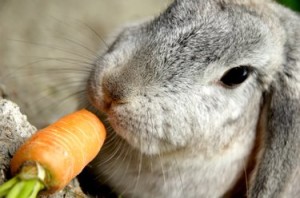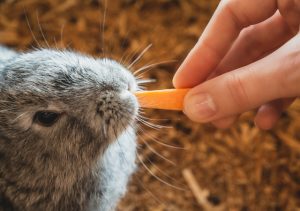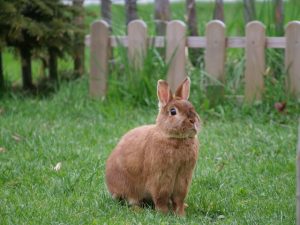
What is great about keeping rabbits as pets is that you can never experience difficulty in terms of what to feed them. Rabbits are vegetarians who can thrive well, stay happy and live a perfectly long life with vegetables. They are considered herbivores, and with that said, just give them unlimited amounts of hay, a few vegetables, and a bowl of clean and fresh water and they should be fine.
However, if you are the type of homeowner who wants to add that dash of variety to your pet rabbit's diet, it is important to know other forms of vegetables that you can feed your pet rabbit with and those that you should stay away from. If you are curious whether it is completely harmless to feed your pet rabbit carrots as a meal, then it is best to ask your veterinarian what he or she thinks about it.
Can I Give My Rabbit Carrots? Yes, but sparingly.
For humans, there is always that natural tendency to emulate what we see on television and treat it as fact in real life situations. Just because Bugs Bunny ate carrots every single time he appeared on television does not mean that pet rabbit owners must adhere to his advice. A lot of animal scientists and veterinarians would say that your pet rabbit must consistently eat hay as their everyday meal and diet. Hay should be their main food and vegetables, particularly the green leafy and root ones, must be considered only as supplementary.
Carrots, together with potatoes and sweet potatoes, are considered root vegetables. Pet rabbits would have a hard time digesting root vegetables because of the presence of complex carbohydrates and less cellulose. As lagomorphs, it is best that pet rabbits should only eat hay and green leafy vegetables since these would not upset their digestive system's homeostasis. The last thing pet rabbit owners would want is their rabbit pooping out runny stool. Not only will it make pet rabbits uncomfortable, it is also dangerous for their internal health.
One of the reasons why it is discouraged to give pet rabbits carrots is that it can cause them to develop tooth decay. Opening your pet rabbit's risk to tooth decay is damaging for their overall state of health. If you are the kind of homeowner who loves eating salads, make sure just to give the carrot leaves instead of the carrot top and the whole body of the carrot itself to your pet rabbit.
Two, carrots pack on a lot of sugar, and giving your pet rabbit loads of sugar for his or her meal is very dangerous. It is best that vegetables high in sugar should be fed only as a treat and not as a meal substitute. If you are really dedicated to feeding your pet rabbit carrots, give a small slice of it as a treat every other day. The cardinal rule when introducing carrots or any vegetable in general to your pet rabbit is that these should be done only once they are 6 months old and older. For the first six months, feed your pet rabbits hay, pellets, and water only. Once they reach older than six months, you can start introducing green leafy vegetables to them and small slices of carrots as part of their snack treats.
As a responsible owner, it is essential not to upset your pet rabbit's digestive system. Giving them digestive sickness and diarrhea is not pleasant at all for both the bunny and you, the owner. When undigested sugar or carbohydrates start to build up in your pet rabbit's ceacum, it can instantly produce gas and change the overall pH level of your pet rabbit's digestive tract. Sugar and starch must be avoided whenever possible as these cannot be digested properly, and when this happens, it can be a potential breeding ground for bacteria upon which diarrhea for your pet rabbit can start.
If you want to feed your pet rabbits Vitamin A but not in the form of carrots, you can give them:
- Bell Pepper, Sweet Green;
- Bell Pepper, Sweet Red;
- Collards;
- Dandelion greens;
- Endive;
- Kale;
- Green leaf – Lettuce;
- Red leaf – Lettuce;
- Romaine – Lettuce;
- Peas, snow (no dried or sweet peas);
- Watercress;
- Wheat Grass.
These are better alternatives. You can also go as far as introducing Vitamin A-rich fruits for treats such as mangoes and apricots.
At the end of the day, a happy pet rabbit is a healthy one, and a healthy rabbit with a good diet has a responsible owner behind it.





